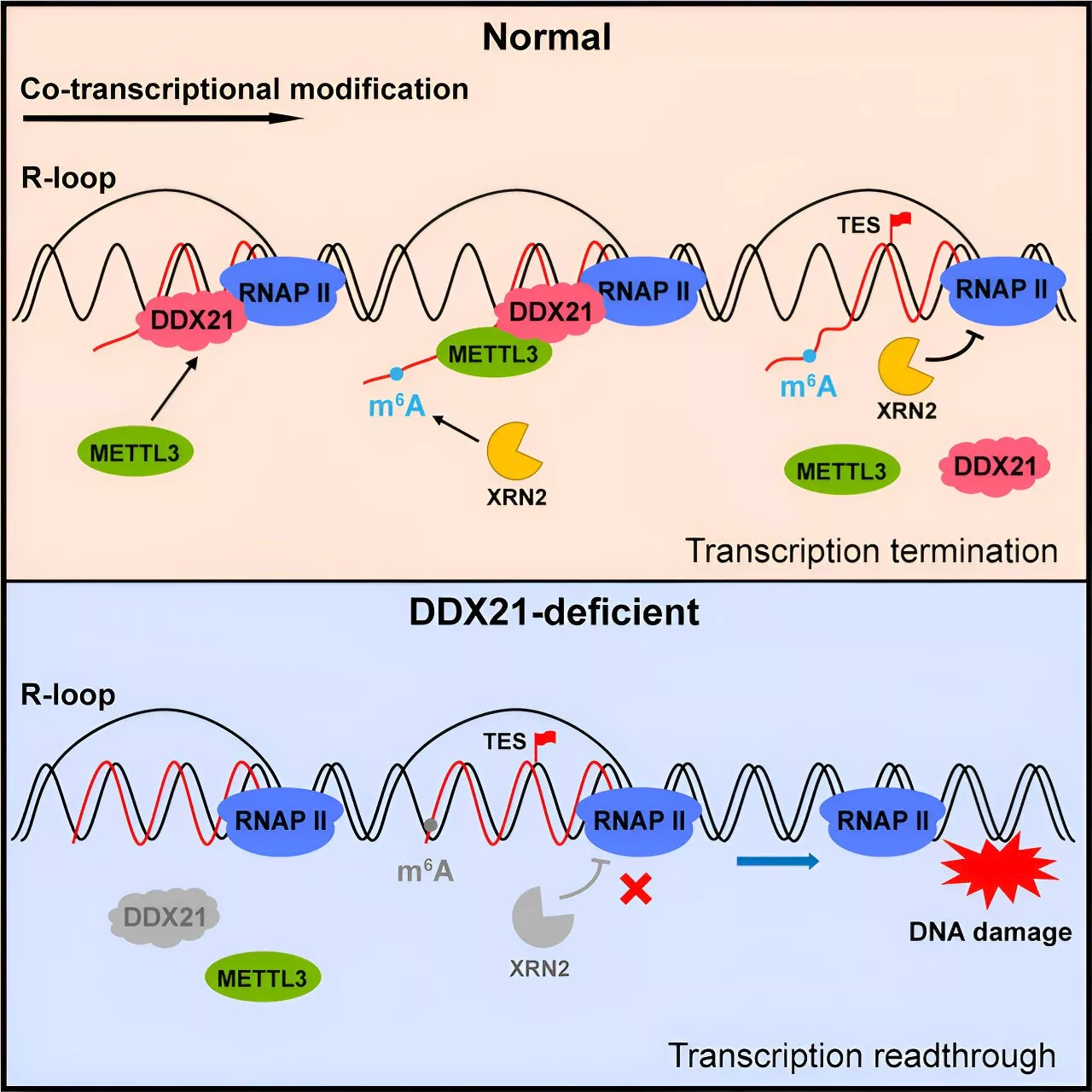Scientists have developed Cas13d-NCS, a molecular tool that allows CRISPR RNA molecules to move from the nucleus to the cytoplasm, making it highly effective at neutralizing RNA viruses. This advancement opens doors for precision medicine and proactive viral defense strategies.
The rise of RNA viruses like SARS-CoV-2 highlights the need for new ways to fight them. RNA-targeting tools like CRISPR/Cas13 are powerful but inefficient in the cytoplasm of cells, where many RNA viruses replicate. Scientists have devised a solution: Cas13d-NCS. This new molecular tool allows CRISPR RNA molecules that are located within the nucleus of a cell to move to the cytoplasm, making it highly effective at neutralizing RNA viruses.
As the world prepares for future and ongoing global health threats from RNA viruses such as the SARS-CoV-2 pandemic, breakthrough advances in antiviral development are becoming a critical weapon in the fight against these infectious diseases. At the heart of this innovation is the exploration of CRISPR/Cas13 systems, which are known for their programmable capabilities to manipulate RNAs and have become indispensable tools for various RNA targeting applications.
Scientists have probed the molecular origins of recombination in RNA viruses. Hiccups during the copying process of viruses cause recombination to take place: the exchange of segments of viral RNA. ...
RNA Viruses SARS-Cov-2 CRISPR/Cas13 Cas13d-NCS Molecular Tool Cytoplasm Nucleus Precision Medicine Viral Defense
United States Latest News, United States Headlines
Similar News:You can also read news stories similar to this one that we have collected from other news sources.
 Decoding the Origin of Life: Scientists Solve Early Earth RNA PuzzleScience, Space and Technology News 2024
Decoding the Origin of Life: Scientists Solve Early Earth RNA PuzzleScience, Space and Technology News 2024
Read more »
 Researchers reveal mechanism behind most common mammalian mRNA modificationRNA—in the form of messenger RNA (mRNA), ribosomal RNA (rRNA), and transfer RNA (tRNA)—transforms the genome coded by DNA into proteins that form the backbone of all cellular functions. However, biochemical modifications to RNA frequently occur, with a subsequent influence on gene expression and the potential to cause disease.
Researchers reveal mechanism behind most common mammalian mRNA modificationRNA—in the form of messenger RNA (mRNA), ribosomal RNA (rRNA), and transfer RNA (tRNA)—transforms the genome coded by DNA into proteins that form the backbone of all cellular functions. However, biochemical modifications to RNA frequently occur, with a subsequent influence on gene expression and the potential to cause disease.
Read more »
 RNA that doesn't age | ScienceDailyCertain RNA molecules in the nerve cells in the brain last a life time without being renewed. Neuroscientists have now demonstrated that this. RNAs are generally short-lived molecules that are constantly reconstructed to adjust to environmental conditions.
RNA that doesn't age | ScienceDailyCertain RNA molecules in the nerve cells in the brain last a life time without being renewed. Neuroscientists have now demonstrated that this. RNAs are generally short-lived molecules that are constantly reconstructed to adjust to environmental conditions.
Read more »
 Gene Therapy, DNA's Past, RNA's Future: The Golden EraI am a scientist, businessman, author, and philanthropist. For nearly two decades, I was a professor at Harvard Medical School and Harvard School of Public Health where I founded two academic research departments, the Division of Biochemical Pharmacology and the Division of Human Retrovirology.
Gene Therapy, DNA's Past, RNA's Future: The Golden EraI am a scientist, businessman, author, and philanthropist. For nearly two decades, I was a professor at Harvard Medical School and Harvard School of Public Health where I founded two academic research departments, the Division of Biochemical Pharmacology and the Division of Human Retrovirology.
Read more »
 Could Modified RNA Be the Key to Healing Neurodegeneration Caused by Brain Disorders Like Alzheimer’s?Science, Space and Technology News 2024
Could Modified RNA Be the Key to Healing Neurodegeneration Caused by Brain Disorders Like Alzheimer’s?Science, Space and Technology News 2024
Read more »
